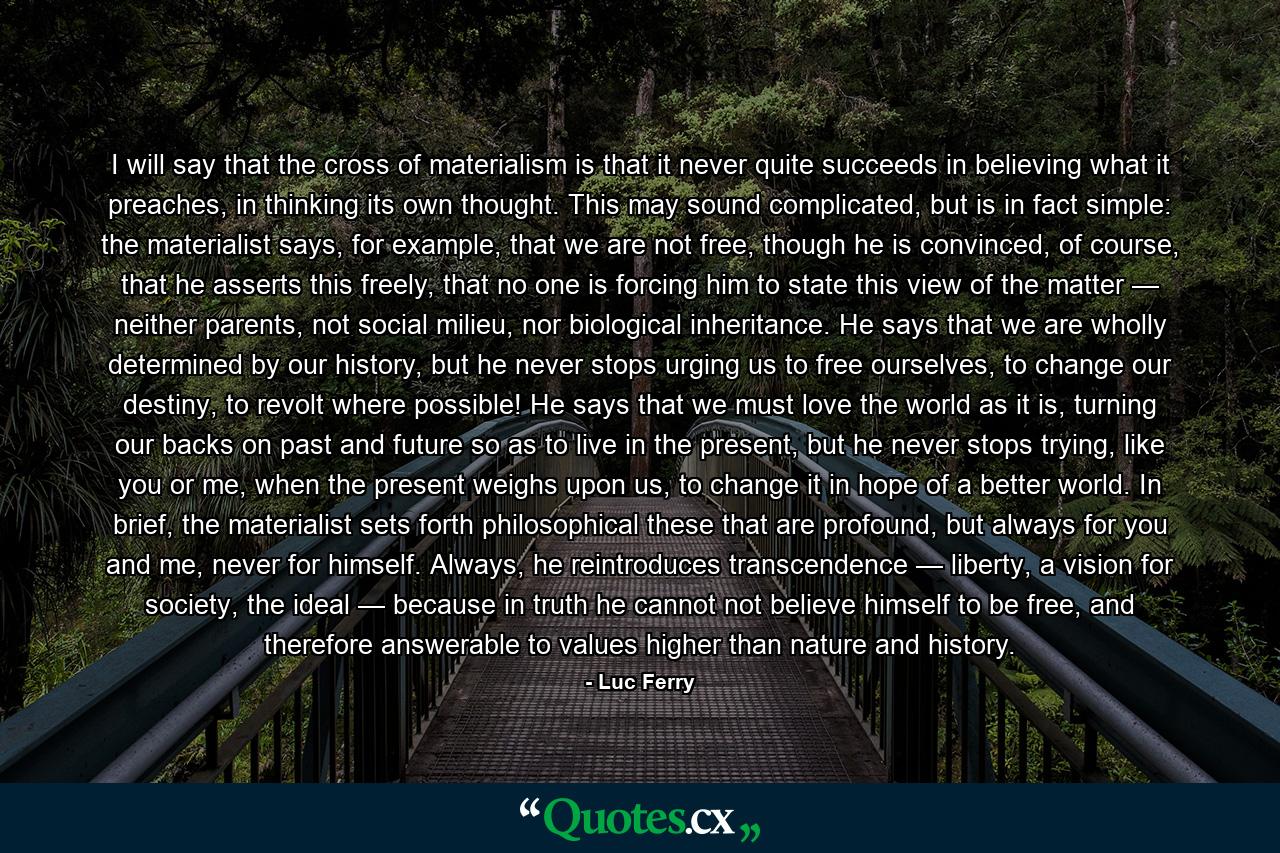I will say that the cross of materialism is that it never quite succeeds in believing what it preaches, in thinking its own thought. This may sound complicated, but is in fact simple: the materialist says, for example, that we are not free, though he is convinced, of course, that he asserts this freely, that no one is forcing him to state this view of the matter — neither parents, not social milieu, nor biological inheritance. He says that we are wholly determined by our history, but he never stops urging us to free ourselves, to change our destiny, to revolt where possible! He says that we must love the world as it is, turning our backs on past and future so as to live in the present, but he never stops trying, like you or me, when the present weighs upon us, to change it in hope of a better world. In brief, the materialist sets forth philosophical these that are profound, but always for you and me, never for himself. Always, he reintroduces transcendence — liberty, a vision for society, the ideal — because in truth he cannot not believe himself to be free, and therefore answerable to values higher than nature and history.
